Dustborn takes the power of misinformation and weaponises it
Red Thread's latest game explores just how powerful our words can really be
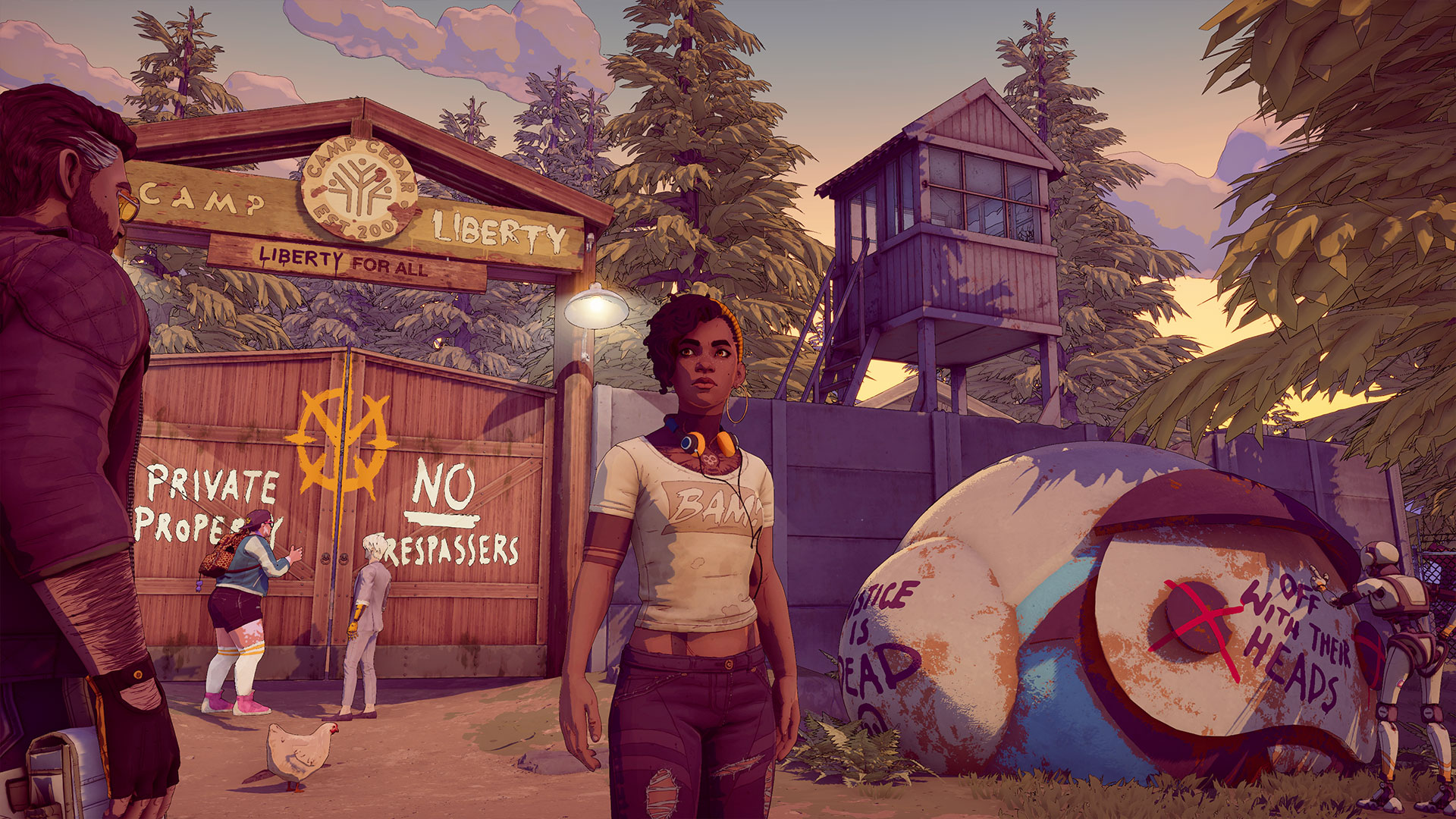
Putting language at the centre of a game isn't a new concept, and it's certainly something developer Red Thread isn't a stranger to. Communication, and sometimes the lack of it, is at the core of its previous two games, Dreamfall Chapters and Draugen, but its next game is taking that focus on language to the next level by weaponising it.
Living in this current climate, and at a point where social media is so prevalent, the power of language – and the misuse of it – feels like something we're having to contend with every single day. Red Thread's new game, Dustborn, which is due some time in 2021 for next-gen consoles and PC, takes the idea of using disinformation as a weapon on both sides of a conversation, with those words sometimes having physical effects on the characters you can interact with on your journey.
Set in an alternative history version of America, sometime in the near future of the year 2030, Dustborn will see you taking a road trip across the continent. But it's not your average road trip story, as the band of travellers you gather together in your bus have powers – specifically weaponised words, fuelled by disinformation.
Powers and pregnancy
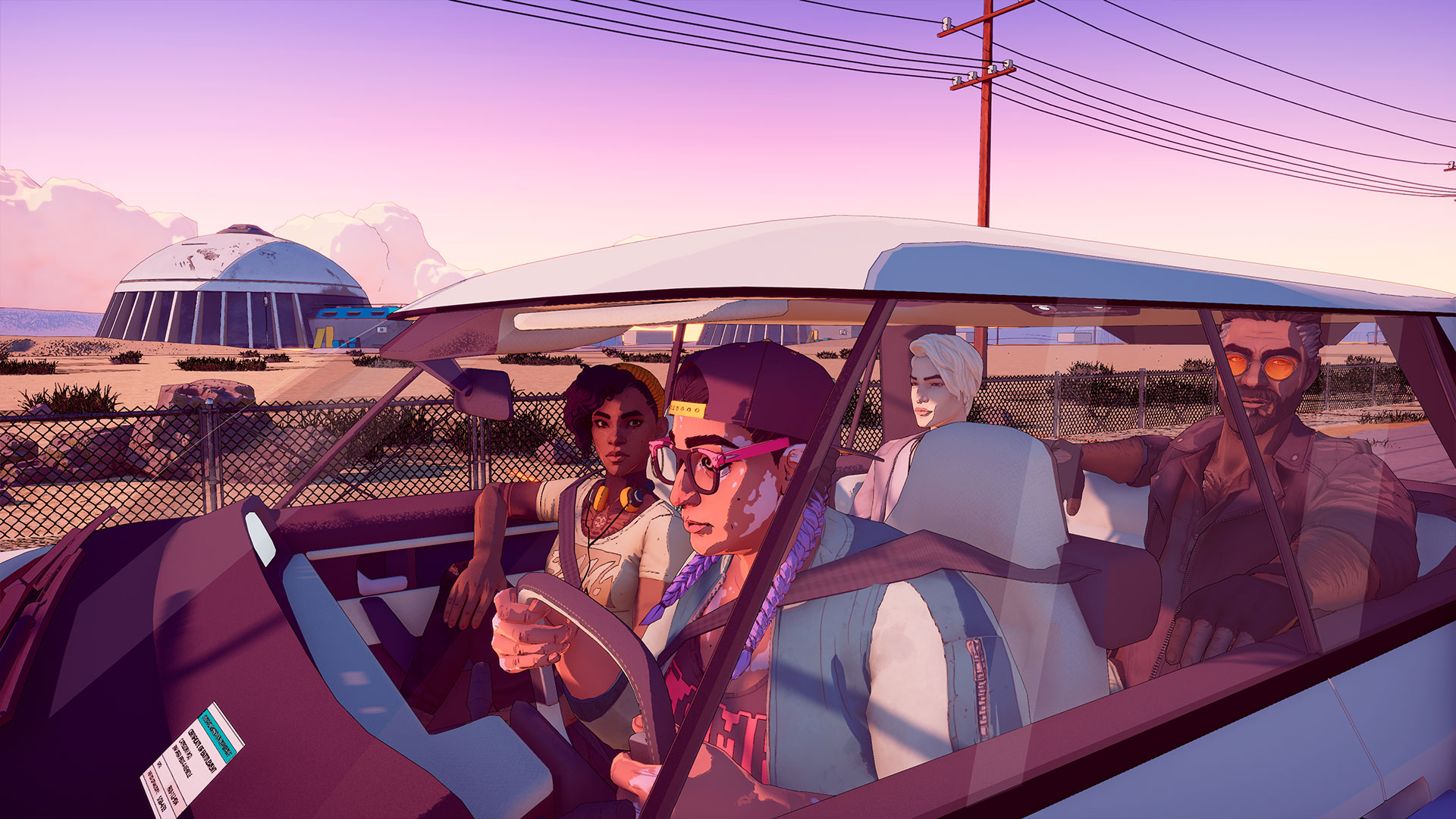
You play as a young woman called Pax, who has grown up in what's known as the American Republic, and having moved to an area called Pacifica as a teenager, is now doing anything she can to get out. Like a lot of the other characters in Dustborn, she's disenfranchised, she's never had a permanent job or a permanent home. And now, she's pregnant.
"It's an important aspect of Pax and why she sets out on this journey," explains Ragnar Tørnquist, creative director and CEO of Red Thread Games. "It’s because she’s come to this crossroad in her life. As long as it’s just her, she could deal with being unhappy. She could deal with living that life – you know, moving from couch to couch, from job to job. But now someone is coming into this world that she needs to protect."
She starts out the journey with a robot for a driver, and recruits her best friend, ex-partner, and their employer to come along with her for the big escape. As you work your way across the US, moving through the various terrains that the continent has to offer, you'll discover plenty of additional characters, which you may want to add to your group. These characters will bring new skills and new stories to the team, all focused around the power of words and our ability to manipulate them.
These powers seemingly started emerging around an event that happened 30 years ago known as the Infodemic - aka the information epidemic. This cataclysmic event released and unleashed the forces of disinformation, and it's this that's central to Dustborn's plot.
Weekly digests, tales from the communities you love, and more
"The idea of language, words, information, and especially disinformation, is such an important issue right now," says Tørnquist. "We're not the game that tries to preach anything or tries to be a statement necessarily, but we want our games to be about something, and to have themes, and to have an opinion."
Fight with words
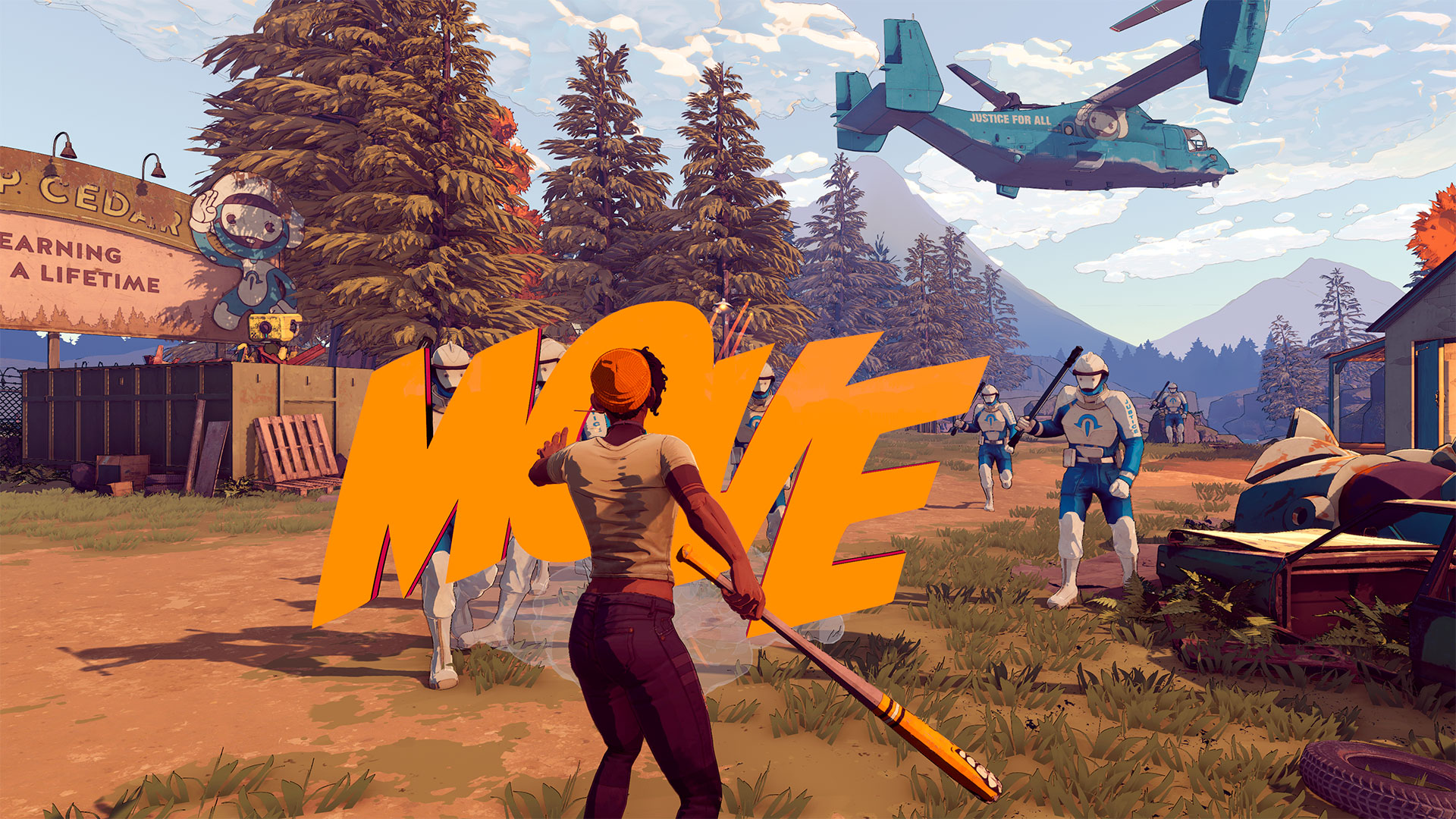
Dustborn takes that power of disinformation and weaponises it, turning it into physical powers that can be used by both the forces for good and the not-so-good. Like its previous games, developer Red Thread Games is still saying that Dustborn is "maybe 100% dialogue, 100% of the time", but interestingly enough it's using dialogue in combat too.
As you progress through the game, you'll gain a growing vocabulary of words that can physically affect other characters. You'll acquire various new words through a gameplay system that Red Thread isn't ready to reveal quite yet, but when you've got them you can use them in conversation, on friends, on new acquaintances, and in combat. In the gameplay trailer we've seen, you can watch Pax saying the word "move", which pushes some armed guards away from her with some force. It'll be interesting to see what other words we'll have in our arsenal as we travel across this alternative USA.
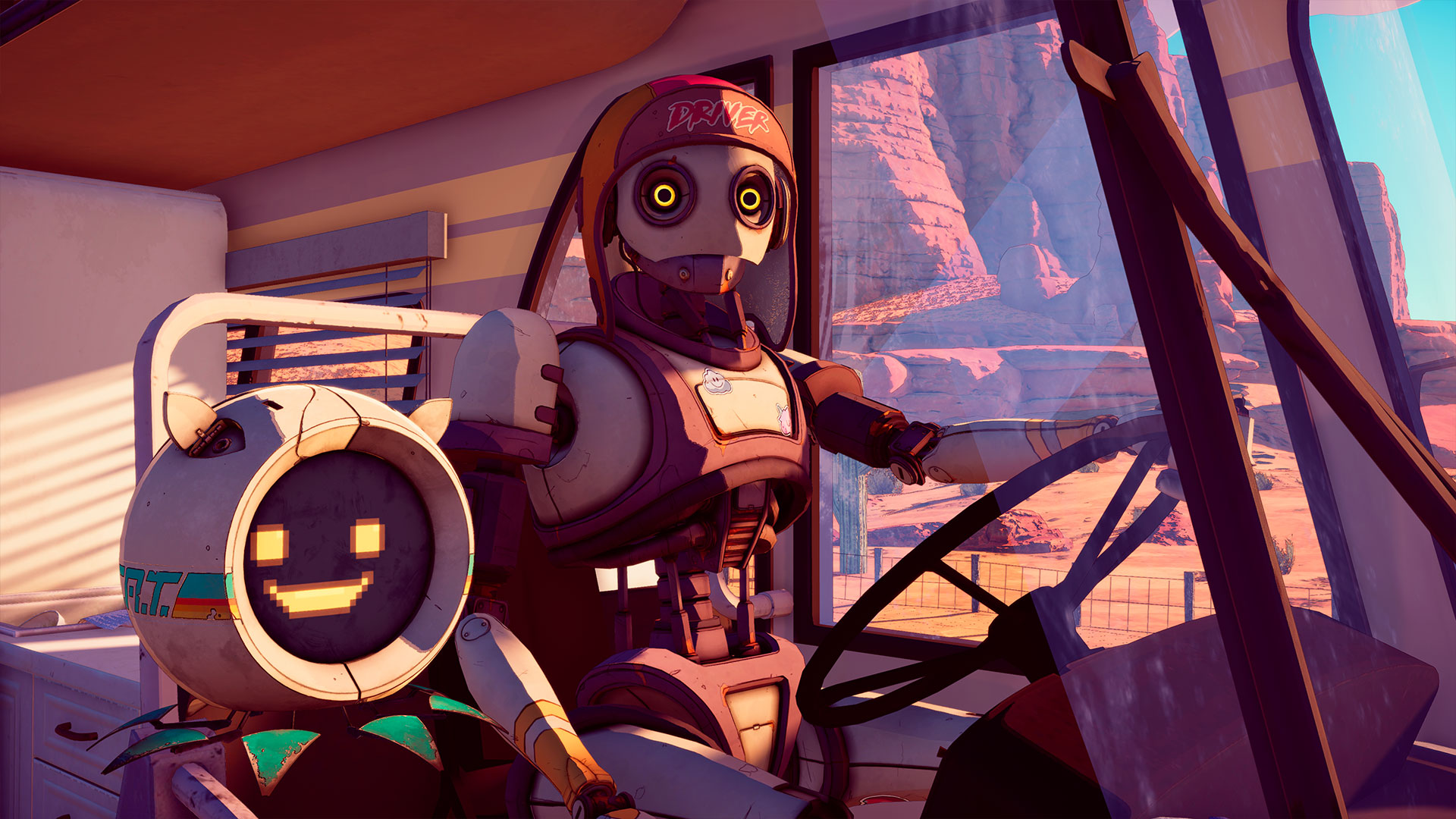
"One thing I really miss about combat in other games is that people aren’t communicating. They aren’t talking. If you watch an action movie – if you watch a Spider-Man movie for example, or an Avengers movie; during combat, everybody’s very chatty. There’s a story being told while people are fighting. So this is something that we are definitely going to do in Dustborn," explains Tørnquist.
"There’s definitely going to be some combat. It’s not a huge part of the game, but it is an important part, especially since words as weapons is something fundamental to the game."
"But even during combat, there will be ongoing dialogue. You could talk to your friends – because in combat, some of the other crew members, they join you and they help you out. Or you can even target and yell stuff at your enemies. You can taunt them. You can sort of do the back and forth, like the good guys and bad guys in an action movie."
This alternate future is a spin on what America is today, a little dystopian - although not in the grey, dark way we've come to expect as you can see in the game's art style - and shadowed by an authoritarian force. And yet, the game wants to focus on interesting human stories told by those you'll meet on Pax's trip.
Diversity of humankind
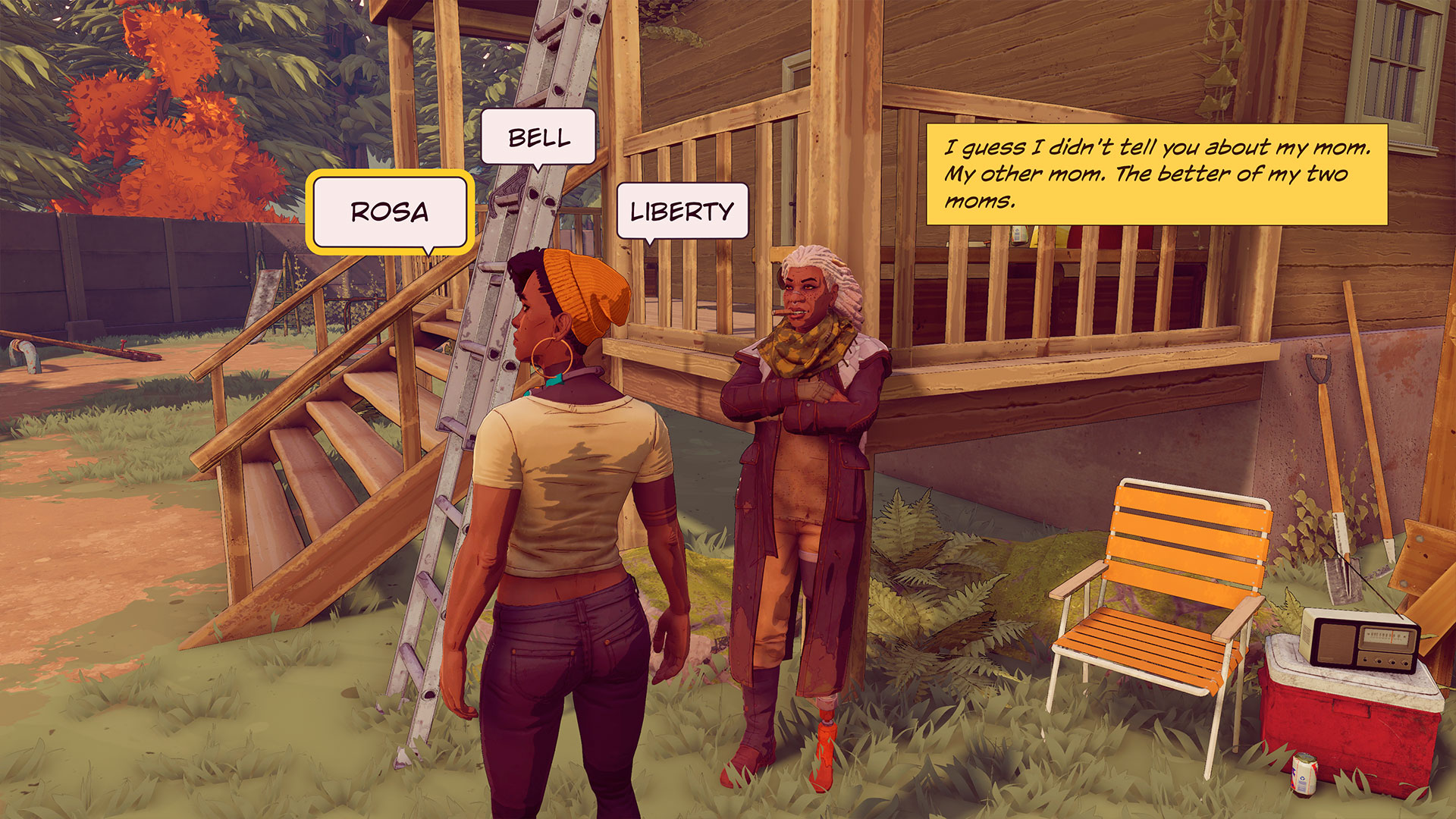
Even from the short teaser trailer and gameplay footage we got to see during the Future Game Show, it's clear that making sure these characters are culturally and ethnically diverse was important to the team. Just take a quick scan at the representation on Dustborn's bus shot alone. It ranges from Pax herself, as a pregnant black woman, through characters with vitiligo, a mechanical hand, a missing eye, and of course robots. Elsewhere in this early slice of gameplay footage, we see plus-size characters, LGBTQ+ identities and narrative themes, and more represented in-game. It's a refreshing way to see a game presented straight from the outset.
"It's less about making a statement [about diversity] than it is just this is who the game is about. These are the stories we want to explore," says Tørnquist. "But of course, it is important that our characters are all underrepresented, and that all of them are people from a different cultural background, and that some of them are refugees. It's important because these are topics and stories that I think need to be explored in games."
Thus, Dustborn feels like a game that really does need to exist in the current political and socio-economical climate. It might be set in an alternative future of a country in turmoil right now, but its ability to address such huge themes means that this might just be one of the next-generation games to put at the top of your watchlist.

Sam Loveridge is the Brand Director and former Global Editor-in-Chief of GamesRadar. She joined the team in August 2017. Sam came to GamesRadar after working at TrustedReviews, Digital Spy, and Fandom, following the completion of an MA in Journalism. In her time, she's also had appearances on The Guardian, BBC, and more. Her experience has seen her cover console and PC games, along with gaming hardware, for a decade, and for GamesRadar, she's in charge of the site's overall direction, managing the team, and making sure it's the best it can be. Her gaming passions lie with weird simulation games, big open-world RPGs, and beautifully crafted indies. She plays across all platforms, and specializes in titles like Pokemon, Assassin's Creed, The Sims, and more. Basically, she loves all games that aren't sports or fighting titles! In her spare time, Sam likes to live like Stardew Valley by cooking and baking, growing vegetables, and enjoying life in the countryside.


